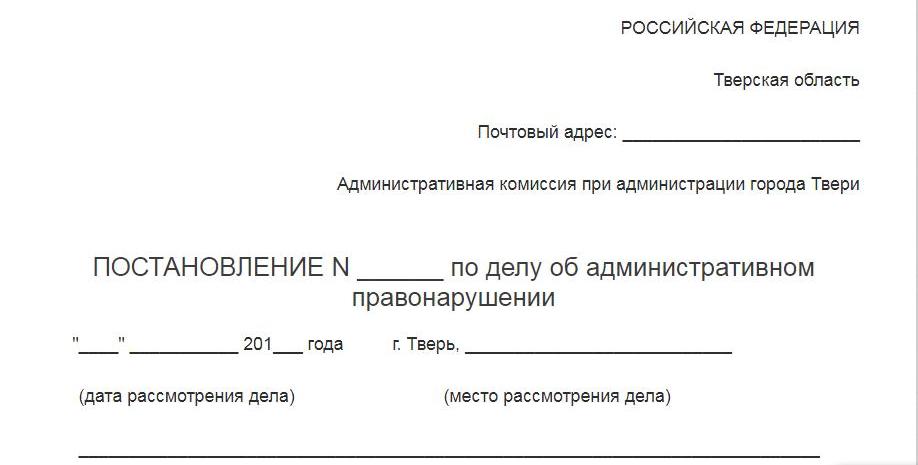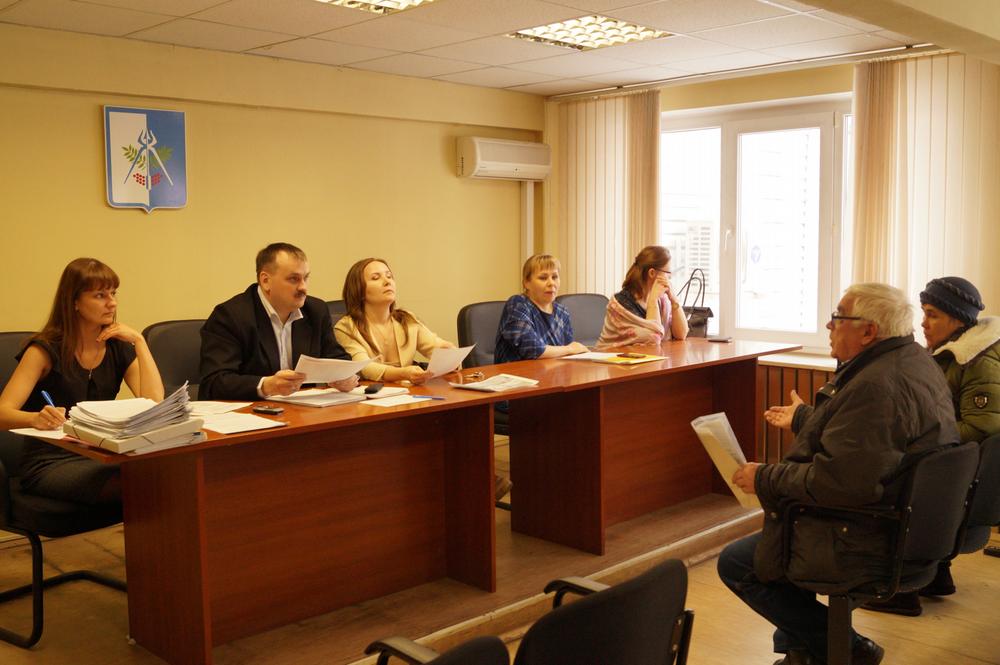Administrative commissions - what is it? This is the name of the bodies provided for by the legislation on administrative responsibility. Let us consider what acts govern their activities, who is included in their composition and how their activities are organized.
Normative regulation
Administrative commissions are only mentioned in the Code of Administrative Offenses of the Russian Federation. The determination of their status, powers, and numbers is referred to the competence of regional authorities.

I must say that the organization of the commissions is structured according to a single template. There are no significant differences. First, a law is adopted, then a local government decree clarifying and concretizing the provisions of the law. Most often, the model regulation on the administrative commission is also adopted. Based on it, commissions are created at the lowest level.
Purpose of creation
The body is created to consider cases of violations of local or regional legislation. His authority is outlined in Art. 22.1 Administrative Code. If the administrative commission ceases to function or is reorganized, then the powers are transferred to new bodies or the court. Under the court more often refers to justices of the peace.
The commission’s task is not to draw up a protocol and form a case. Other persons are involved in this, in particular, police officers, authorized representatives of other bodies. The commission's tasks include making decisions on the materials submitted. It is legitimate to compare its activities to a certain extent with the activities of the court.
Boundaries of competence
The legislative acts of the regions prescribe a rule on the creation of no more than one commission within a district or city, depending on which territorial-administrative unit in question. That is, it is impossible to create at the same time two bodies serving one territory and with the same competence.

Concerning the served territory: there are administrative commissions of the city, district (the urban area is also meant). If several commissions operate within a city or district, the intersection of their fields of competence is not allowed.
The composition of the collegial body
How is the administrative commission of the district formed? To take part in the activities of the body under discussion, it is necessary to reach 18 years of age. Inclusion in the structure is allowed with the written consent of the person. Such a young age is allowed due to the fact that the structure includes not only local government officials and deputies. It is accepted to invite representatives of the public for work.
Its representatives must not have foreign citizenship, a residence permit or a similar document giving the right to permanent residence in the territory of a foreign state.
The composition of collegial structures is not limited to municipal or regional public servants. By agreement with federal authorities, their representatives may also be included in the commission. The officials in the administrative affairs committee may not constitute more than half of the number of participants.
Additional restrictions
The commission may not be invited people who have a criminal record, which is not paid. Restrictions have been introduced in respect of persons recognized as incompetent or of limited legal capacity.

The occurrence of these circumstances in the lives of members of the administrative commission prevents their further stay in it.
If a state and municipal employee is suspended from the performance of official duties or loses his status, the same happens with his participation in the commission.
Commission composition
According to established practice, the number of the commission on administrative offenses is from 7 to 11 people.
It is led by a chairman, he has a deputy. The executive secretary is introduced on an ongoing basis. The last official is not present in all regions of the country. Consider their role in the work of the commission.
What does the chairman do:
- heads the collegial body;
- responsible for activities to higher bodies and officials, submit a report;
- plans and organizes the work of the structure;
- distributes duties between subordinates;
- appoints meetings and directs their conduct;
- directs the work of the apparatus of the commission.
What are the features of the status of vice chairman:
- Fulfills the instructions of the chairman;
- replaces it in the absence period;
- performs other functions transferred to it.
What are the tasks of the executive secretary:
- prepares materials for consideration;
- informs the members of the commission and participants in the case about the meeting;
- keeps a protocol and draws up decisions of the commission;
- prepares reports on the activities of the commission, performs other instructions of the chairman.
On a paid basis, the chairman, his deputy and an employee performing technical functions participate in the activities of the body.
Rights of Commissioners
Now consider the list of rights of members of commissions:
- get acquainted with the materials of cases submitted for consideration;
- raise the question of the need to postpone the meeting and request documents, order an examination and take other measures to more fully examine the circumstances of the case;
- participate in the meeting;
- ask questions to the persons called to the meeting;
- examine written and material evidence;
- participate in the discussion of decisions;
- vote in the decision-making process;
- keep a protocol if there is no official responsible for its maintenance.

The regulatory acts of individual regions prescribe a clause on the procedural independence of commission members. The chairman, his deputy or employees of the apparatus are not entitled to limit it in any way.
Commission rights
Below we consider the rights of the commission as a collegial body, a single whole:
- sending inquiries to authorities, officials and organizations, regardless of the organizational form and ownership with the aim of obtaining documents;
- invitation of citizens and officials to obtain the necessary information;
- interaction with municipal and state authorities, public organizations and individual citizens in the course of their activities.
Note that the commission has the status of a legal entity, has its own seal. The regional government or administration (city and municipal) provides the material and technical base and approves sample forms.
Process regulation
In the relevant regulatory acts, regarding the description of the procedural activities of the commission, reference may be made to the Code of Administrative Offenses.

In some regions, it is practiced to prohibit the introduction of procedural norms in acts regulating the activities of the commission.
Features of the regions
The structure described above is exemplary. The wording may differ in space or brevity, but their content is not significantly different. The powers of deputy commissioners, the size, and the organization of the technical apparatus are distinguished.
Review process
The procedure for considering cases in the commission is organized in the same way as in other bodies or courts:
- the submitted materials are studied for subject to jurisdiction to another body, readiness of the case for consideration on the merits;
- the participants in the case are called (person held accountable, official of the body that transferred the materials, the victim, witnesses);
- The parties' arguments, evidence presented are examined;
- the decision of the administrative commission shall be made by voting.

It is drawn up in the form of a decree. The legitimacy of the decision depends not only on the correctness of the assessment of the collected materials, the assessment of legislative norms, but also on whether there was a quorum of the commission - whether there are enough members to make a decision.
Compilation of the final document
The decision of the administrative commission is the final document in the case. It has approximately the following structure:
- the name of the commission, the names and initials of its members;
- date and settlement where the case was examined;
- information about the person found guilty of a violation;
- identified circumstances;
- the reasons for the decision (why the person involved was found guilty or innocent);
- sentence imposed;
- terms and procedure for appealing the decision.

Commissions are allowed to impose fines or warnings. The use of other measures is considered a violation. If a decision has been made about a fine, the details of the account to which the funds should be credited are indicated.
Finally
Administrative commissions are special bodies that consider violations of regional legislative acts. If they are absent or do not conduct activities, the powers of review are transferred to the courts.
The commission can be organized in the district, including the city. Her authority may extend to the entire city. They are limited in terms of sentencing: they have the right to order a warning or a fine.
The structure includes both officials and members of the public. The second group has a number of requirements. If subsequently obstacles arise for further being on the commission, a person is excluded from its composition.
